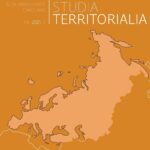 Acta Universitatis Carolinea – Studia Territorialia (Web)
Acta Universitatis Carolinea – Studia Territorialia (Web)
Proposals by: 31.01.2023
Although both past and current armed conflicts have had deleterious consequences for women, this topic is still under-explored in academia. As Rehn and Johnson Sirleaf pointed out in 2002, “The situation of women in armed conflict has been systematically neglected.” This lacuna persists even though the experience of women during and after conflict is widespread. Russia’s war on Ukraine and the latest women-led uprising in Iran reinforce the urgency of engaging with women’s experiences during conflicts and post-conflict. The painful past of women affected by armed conflict and political violence is frequently overlooked in official memory and in the history of states for a variety of reasons.
Often, women’s voices and the memory of their ordeals during conflicts and in oppressive regimes are subsumed in a grand narrative of the suffering of the “whole nation,” which stifles the voices, testimonies, and claims of women victims, resisters, survivors, care givers, fighters, and mediators. Though men inarguably suffer greatly from the violence of political repression and armed conflict, women and girls are much more affected by sexual and psychological violence because they are regarded as repositories of ethnic and cultural identity. Moreover, women are exposed to manifold, intersecting forms of exclusion. Thus, women’s “aftermath” of conflict, as well as the burden of displacement, are experienced considerably differently than that of men. Although women are exposed to double or even triple jeopardy during and after conflicts and mass violence, their experiences nevertheless should not be exclusively viewed through a lens of victimhood. In that vein, the editors are looking for contributions that address all the dimensions of women’s victimhood but also their resistance to conflict and mass violence. Read more … (Web)
